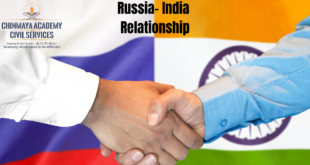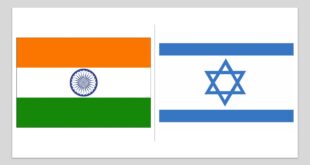- Egyptian President Abdel Fateh el-Sisi arrived here on Tuesday on a four-day state visit. Mr. Sisi is the first Egyptian leader to be invited as the chief guest for the Republic Day Parade.
- During the visit, officials said, both sides will sign several MoUs and discuss taking ties forward on strategic issues, defence, trade, agriculture and renewable energy.
- The invitation to Mr. Sisi is also being seen as part of the government’s push to engage the “Global South”, and as a rekindling of the principles of non-alignment that have come back to the fore after the Russian war in Ukraine began in February last year.
- Sisi, who visited India twice before, is expected to return later this year for the G-20 summit, where India has invited Egypt as a special guest country.
- “Even without coordination, Egypt and India have similar positions at the United Nations today. We have civilisational ties, and the way our thinking has developed — principles of non-intervention, respectful of sovereignty, no use of force — these are all pertinent even today, as we have seen recently in the Ukraine conflict,” a senior Egyptian diplomat who served in India as Ambassador previously told.
- Former Indian Ambassador to Egypt Navdeep Suri said the invitation to Mr. Sisi as the Republic Day chief guest was an “important gesture” by the Modi government at a time the world was “re-discovering multipolarity”.
- He pointed out that in the wake of Western sanctions against Russia and a ban on wheat exports in India, the Modi government had made an exception for Egypt.
- “As the world’s largest importer of wheat much of it from Ukraine and Russia, Egypt was in a uniquely vulnerable position, and India’s assistance bridged what could have become a major gap in supply for them,” he said.
- “The fact is in a world where the need for strategic autonomy is replacing many traditional alliances in the developing world, India and Egypt are finding more and more in common,” he added.
- India and Egypt were co-founders of the Non-Alignment Movement (NAM) in 1961 along with Yugoslavia, Indonesia and Ghana. Ties between India and Egypt grew under Prime Minister Jawaharlal Nehru and President Gamal Abdel Nasser.
- However, despite keeping up the high-level visits and keeping their commitment to NAM strong, bilateral ties between the two countries declined over time, especially as India’s links with the Gulf countries grew stronger.
- There might have been some global changes that pushed the NAM itself into the background, but it doesn’t change our positions,” the senior Egyptian diplomat engaged in preparations for Mr. Sisi visit to India, who did not want to be identified, said, pointing out that the “South-South cooperation” and the G-77 that India and Egypt are actively involved in, were products of the NAM movement.
SOURCE: THE HINDU, THE ECONOMIC TIMES, PIB
 Chinmaya IAS Academy – Current Affairs Chinmaya IAS Academy – Current Affairs
Chinmaya IAS Academy – Current Affairs Chinmaya IAS Academy – Current Affairs

